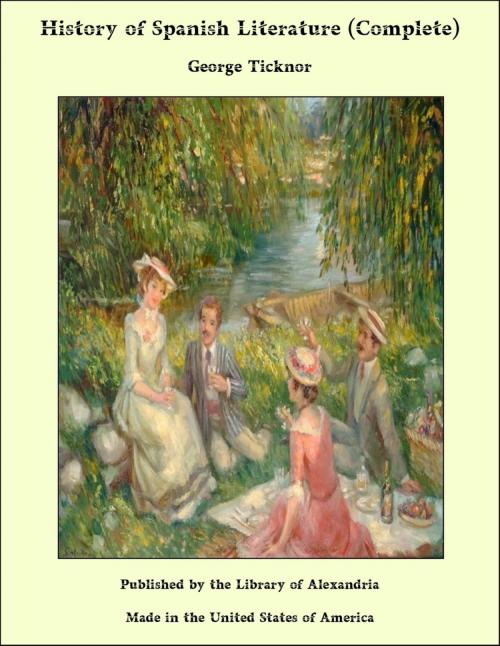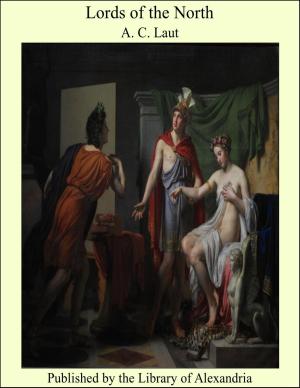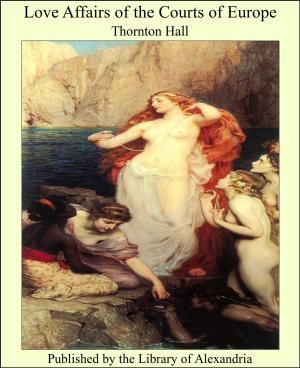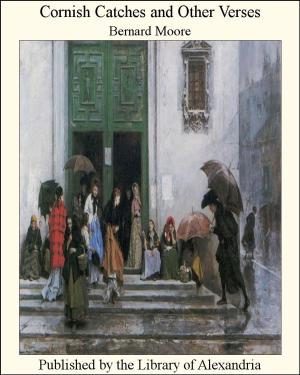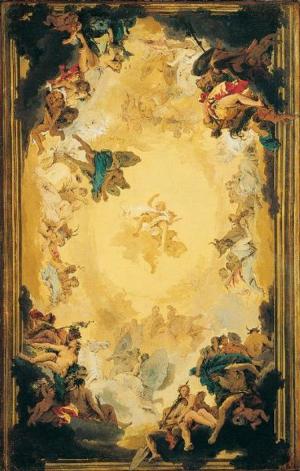History of Spanish Literature (Complete)
Nonfiction, Religion & Spirituality, New Age, History, Fiction & Literature| Author: | George Ticknor | ISBN: | 9781465618535 |
| Publisher: | Library of Alexandria | Publication: | March 8, 2015 |
| Imprint: | Language: | English |
| Author: | George Ticknor |
| ISBN: | 9781465618535 |
| Publisher: | Library of Alexandria |
| Publication: | March 8, 2015 |
| Imprint: | |
| Language: | English |
In the earliest ages of every literature that has vindicated for itself a permanent character in modern Europe, much of what constituted its foundations was the result of local situation and of circumstances seemingly accidental. Sometimes, as in Provence, where the climate was mild and the soil luxuriant, a premature refinement started forth, which was suddenly blighted by the influences of the surrounding barbarism. Sometimes, as in Lombardy and in a few portions of France, the institutions of antiquity were so long preserved by the old municipalities, that, in occasional intervals of peace, it seemed as if the ancient forms of civilization might be revived and prevail;—hopes kindled only to be extinguished by the violence amidst which the first modern communities, with the policy they needed, were brought forth andestablished. And sometimes both these causes were combined with others, and gave promise of a poetry full of freshness and originality, which, however, as it advanced, was met by a spirit more vigorous than its own, beneath whose predominance its language was forbidden to rise above the condition of a local dialect, or became merged in that of its more fortunate rival;—a result which we early recognize alike in Sicily, Naples, and Venice, where the authority of the great Tuscan masters was, from the first, as loyally acknowledged as it was in Florence or Pisa. Like much of the rest of Europe, the southwestern portion, now comprising the kingdoms of Spain and Portugal, was affected by nearly all these different influences. Favored by a happy climate and soil, by the remains of Roman culture, which had lingered long in its mountains, and by the earnest and passionate spirit which has marked its people through their many revolutions down to the present day, the first signs of a revived poetical feeling are perceptible in the Spanish peninsula even before they are to be found, with their distinctive characteristics, in that of Italy. But this earliest literature of modern Spain, a part of which is Provençal and the rest absolutely Castilian or Spanish, appeared in troubled times, when it was all but impossible that it should be advanced freely or rapidly in the forms it was destined at last to wear. For the masses of the Christian Spaniards filling the separate states, into which their country was most unhappily divided, were then involved in that tremendous warfare with their Arab invaders, which, for twenty generations, so consumed their strength, that, long before the cross was planted on the towers of the Alhambra, and peace had given opportunity for the ornaments of life, Dante, Petrarca, and Boccaccio had appeared in the comparative quiet of Lombardy and Tuscany, and Italy had again taken her accustomed place at the head of the elegant literature of the world.
In the earliest ages of every literature that has vindicated for itself a permanent character in modern Europe, much of what constituted its foundations was the result of local situation and of circumstances seemingly accidental. Sometimes, as in Provence, where the climate was mild and the soil luxuriant, a premature refinement started forth, which was suddenly blighted by the influences of the surrounding barbarism. Sometimes, as in Lombardy and in a few portions of France, the institutions of antiquity were so long preserved by the old municipalities, that, in occasional intervals of peace, it seemed as if the ancient forms of civilization might be revived and prevail;—hopes kindled only to be extinguished by the violence amidst which the first modern communities, with the policy they needed, were brought forth andestablished. And sometimes both these causes were combined with others, and gave promise of a poetry full of freshness and originality, which, however, as it advanced, was met by a spirit more vigorous than its own, beneath whose predominance its language was forbidden to rise above the condition of a local dialect, or became merged in that of its more fortunate rival;—a result which we early recognize alike in Sicily, Naples, and Venice, where the authority of the great Tuscan masters was, from the first, as loyally acknowledged as it was in Florence or Pisa. Like much of the rest of Europe, the southwestern portion, now comprising the kingdoms of Spain and Portugal, was affected by nearly all these different influences. Favored by a happy climate and soil, by the remains of Roman culture, which had lingered long in its mountains, and by the earnest and passionate spirit which has marked its people through their many revolutions down to the present day, the first signs of a revived poetical feeling are perceptible in the Spanish peninsula even before they are to be found, with their distinctive characteristics, in that of Italy. But this earliest literature of modern Spain, a part of which is Provençal and the rest absolutely Castilian or Spanish, appeared in troubled times, when it was all but impossible that it should be advanced freely or rapidly in the forms it was destined at last to wear. For the masses of the Christian Spaniards filling the separate states, into which their country was most unhappily divided, were then involved in that tremendous warfare with their Arab invaders, which, for twenty generations, so consumed their strength, that, long before the cross was planted on the towers of the Alhambra, and peace had given opportunity for the ornaments of life, Dante, Petrarca, and Boccaccio had appeared in the comparative quiet of Lombardy and Tuscany, and Italy had again taken her accustomed place at the head of the elegant literature of the world.
